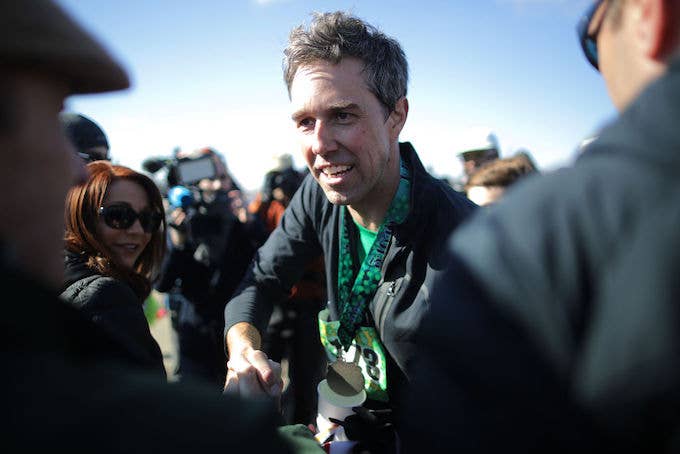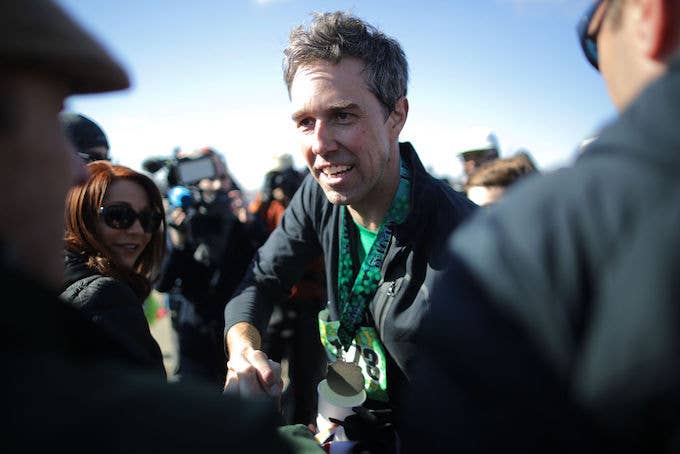
In the few days since Beto O'Rourke announced his White House bid, the former congressman experienced firsthand the extent to which presidential politics are scrutinized.
After kicking off his campaigning efforts in Iowa, O'Rourke spoke to a group of locals at a coffee shop where he admitted that his wife Amy takes the lead when it comes to raising their three children, "sometimes with my help." The comment prompted many to criticize the facetious remark, noting the imbalanced burden mothers and single parents must navigate, and that a female candidate would have been crucified by her opponents for making a similar statement.
During a recent appearance on the Political Party LIVE! podcast, O'Rourke recognized the misstep and pledged to rework his rhetoric going forward. "My ham-handed attempt to try to highlight the fact that Amy has the lion's share of the burden in our family — that she actually works but is the primary parent in our family, especially when I served in Congress, especially when I was on the campaign trail — should have also been a moment for me to acknowledge that that is far too often the case, not just in politics, but just in life in general," the candidate explained. "I will be much more thoughtful in the ways that I talk about my marriage."
While acknowledging his "white privilege" many were quick to point out, O'Rourke explained that his critics were “right on” and the backlash he received was warranted.
However, this wasn't the first time O'Rourke's wife was at the forefront of the criticisms lodged against the former congressman. In the announcement of his presidential candidacy, Beto vigorously motioned his hands in excitement as his wife looked up at him supportively, without saying a single word.
Her palpable silence, as Astead W. Herndon of the New York Times points out, depicts an archaic example of gender politics, and not one a progressive candidate like Beto O'Rourke — who appears to be taking a page out of Obama's book when it comes to youth appeal—can afford.
In his Vanity Fair cover story, which coincided with his presidential announcement, Beto admits that he believes he was "born to be in it." The comment unsurprisingly drew in a legion of critics harping about the failure to acknowledge his white privilege. Although it did have a pompous connotation, more than anything O'Rourke allowed his charisma and his idealism to trump the optics of a political campaign, and for a white man running on his ability to mobilize the youth vote, dodging the landmines of identity politics has to be a top priority.

